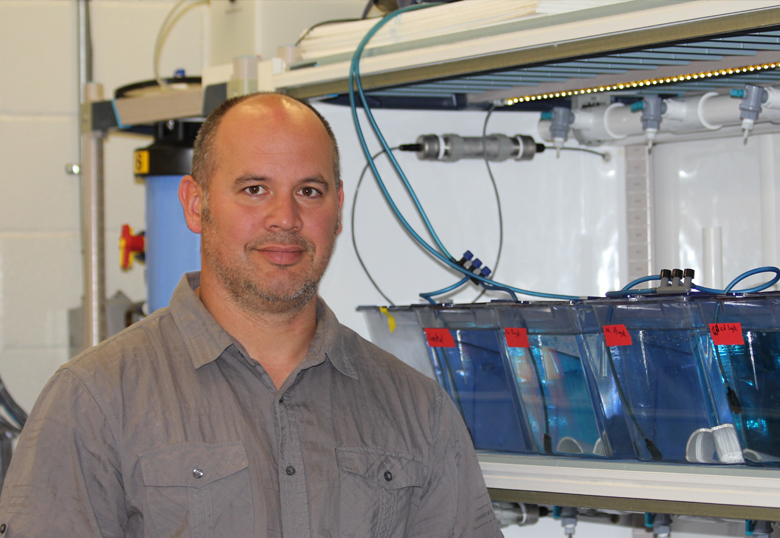The federal government has named Dr. Steve Wiseman, a biology professor at the University of Lethbridge, a Tier II Canada Research Chair in Aquatic and Mechanistic Toxicology.
Kirsty Duncan, Minister of Science, announced more than $173 million in funding to support 203 new and renewed Canada Research Chairs at 48 post-secondary institutions across the country.
“I would like to extend my heartfelt congratulations to the new and renewed Canada Research Chairs,” says Duncan. “The Government of Canada is proud to support talented researchers whose hard work will improve our scientific understanding and strengthen Canada’s reputation for research excellence. The Chairs’ efforts will also provide us with the evidence needed to inform decisions that help us build a vibrant society and a strong middle class.”
Wiseman’s research program primarily focuses on determining whether chemical stressors in aquatic systems pose a risk to aquatic organisms, especially fish.

“The goal of my research program is to understand toxic effects that chemicals might have on freshwater fish and the mechanisms by which they cause these effects,” says Wiseman. “Most of this research is conducted under controlled laboratory conditions. However, the goal is to use the knowledge and tools that are generated from this laboratory research to assess whether fish in the wild have been exposed to a toxic chemical and whether that chemical poses a threat to the animal and the greater aquatic environment.”
His appointment as a Canada Research Chair will allow him to develop a world-class research program that not only answers these important questions, but also trains the next generation of scientists.
Wiseman, who also conducts research in freshwater systems, studies animals’ responses after they have been exposed to a chemical, synthetic or natural, and whether it affects an animal adversely.
“As populations grow and as industrial activity increases, more chemicals end up in aquatic environments. We’ve got new chemicals and we’ve got lots and lots of old chemicals and for the vast majority of them, we have no idea what they do to aquatic organisms, including fish,” he says.
Pharmaceuticals intended for human use are often flushed down the drain and wastewater treatment plants are unable to remove them from the water. The drug compounds end up in rivers where fish are then exposed to them.
“A lot of my research over the last seven years has been related to oilsands development, which is a huge concern here in Alberta and also nationally and internationally. In that development, the chemicals are naturally occurring and after you extract the oil, many of these chemicals are left behind in water that companies store in ponds that are cut off from the natural environment. Ultimately, we need to know if the water in these ponds is detoxifying and if it is safe either for establishing new habitat or for releasing to the wider environment. It’s an important issue not only in terms of environmental science but it’s also an important research area in terms of economics,” he says.
In addition to national and global issues, Wiseman wants to look at issues that are important to southern Alberta. Water is a finite resource but numerous activities put more and more pressure on water supplies for people, animals and industry.
“No industry in my mind is worth more than our natural resources and our ecosystems but there’s always a balance there. They’re important questions to ask, not just from the point of view of the effects on animals and the environment, but also from a societal perspective. Most industrial activity is sustainable if it’s done in the right way and done responsibly,” he says.
Wiseman is originally from Newfoundland. He attended Mount Allison University for his undergraduate degree and then completed his graduate degrees at the University of Waterloo. He completed a postdoctoral fellowship at the University of Saskatchewan and stayed on as a research associate before coming to the U of L.
